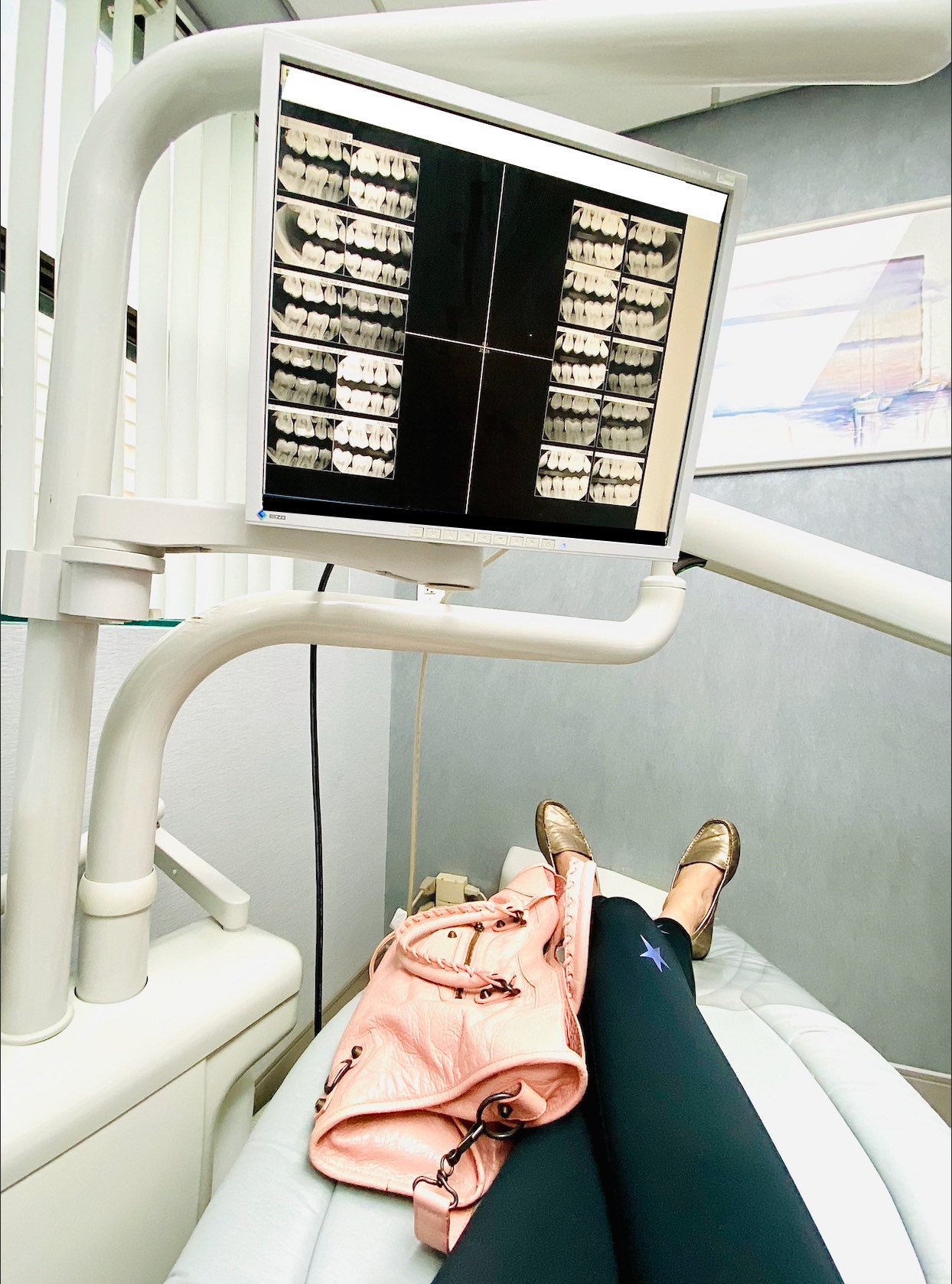What do Bleeding Gums Mean?
What do Bleeding gums mean?
Is it normal for my gums to bleed at the dentist?
Bleeding gums are a common sign of inflammation. When many people see blood when they floss, they stop doing it. In fact, the blood usually means to floss more, not less. Within reason, of course. In this post, we’ll cover how to properly floss and explore why gums bleed in the first place.
Why do gums bleed?
One of the most common causes of inflammation is buildup – of food, plaque (the soft debris that sticks to your teeth), and/or calculus (the debris that’s hardened onto your teeth). There are areas, especially under the gums, that may be difficult if not impossible to reach and clean on your own. Over time this stuff hardens and creates a pebble-in-shoe effect.
Every time you chew, the hard points poke your gums much the way a pebble stuck in your shoe would poke your foot. After a while, this repeated trauma causes inflammation and bleeding and soreness.
Good dental care at home helps to prevent this process, but routine cleanings at your dental office are necessary to reach the areas you can’t reach and to take off the hard buildup, which you won’t be able to remove on your own.
Are bleeding gums normal?
A little “pink in the sink” from bleeding gums is never normal, and it is important to have a professional evaluation to determine the potential causes and plan of treatment and prevention. While bleeding should not be considered normal and is not sign of good oral health, it is even more important to tell your doctor if you find your gums bleed even when you’re not brushing or flossing, as certain systemic conditions may contribute to this spontaneous bleeding.
What’s the correct way to floss?
Gently! Flossing should be done up and down hugging each tooth like a “C”, once a day and when food is caught. It is also important to have regular professional cleanings, at least every six months, since there are likely areas that you can’t reach at home.
There may also be other underlying causes of the bleeding, so it is important to discuss with your dentist.
What do dentists do to stop gums from bleeding?
New article states that patients who receive regular cleanings may have better overall health.
In “Health Plans Expand Dental Benefits,” McQueen writes in The Wall Street Journal that one dental plan recently began offering coverage of antimicrobial mouthwashes for pregnant women. The same plan conducted pilot programs designed to urge pregnant women and people with chronic disease to visit a dentist.
According to The Wall Street Journal, several health plans have taken notice and decided to cover teeth cleanings as part of their overall medical package in the hopes that there will be a decrease in the incidence of premature deliveries, diabetes, and heart disease.
Patients who are at-risk, such as pregnant women, people with heart disease or diabetes, will be expected to have a third regular tooth cleaning each year (one every four months rather than the usual one every six months), or additional deep cleanings as needed.
PERIODONTAL DISEASE
What disease causes my gums to bleed?
Periodontal Disease can lead to swollen and bleeding gums when left untreated.
The word periodontal means “around the tooth.”
What is periodontal disease?
Periodontal disease is a chronic bacterial infection that affects the gums and bone supporting the teeth.
Periodontal disease can affect one tooth or many teeth.
Periodontal disease begins when the bacteria in plaque (the sticky, colorless film that constantly forms on your teeth) causes the gums to become inflamed.
Dental expert reveals important news about periodontal disease and its effect on longevity.
Regular periodontal tooth cleanings are critical for overall health.
Young men who had a maximum oral hygiene index of 6 (0 indicating ideal oral hygiene and 6 poor oral hygiene) had a three to four times higher risk of dying sooner than those who had a hygiene index of 0. In addition, young men with periodontitis had a nearly threefold increased risk of dying from coronary heart disease.
An infection in your gums can travel through your body to other organs, such as your heart, digestive system, and lungs.
In the book “Real Age: Are You as Young as You Can Be?” Dr. Michael F. Roizen states that periodontal disease and poor oral hygiene may be indicators of premature death.
Gum disease has been linked to heart disease, diabetes, respiratory disease, digestive problems, osteoporosis, and immune problems.
It’s more important than ever to go for regular dental check-ups with a dental hygienist to ensure that you are maintaining adequate periodontal health.
Gum Disease Increases Risk of Osteoporosis
The link between gum disease and overall health cannot be overemphasized.
Researchers at the University of Buffalo and the University of New York at Buffalo recently found that most people diagnosed with periodontal disease were at a higher risk of underlying osteoporosis. Published in the Journal of Periodontology, the study involved more than 2,500 postmenopausal women.
It also found that women with low bone density, or osteoporosis, were at an 86 percent risk of having gum disease, the major cause of tooth loss in those older than 35 years old.
Researchers also discovered a strong relationship between the advanced form of gum disease that causes bone loss, gum-attachment loss, tooth loss, and osteoporosis.
Eliminating gum disease may also help combat osteoporosis, which affects more than 20 million people in the United States, accounting for nearly 2 million fractures a year.
Maintain a regular schedule of dental cleanings with your Westchester County dentist to remain vigilant against gum disease. Book an appointment today.
Dentist Near Me in Westchester County, NY
Get a dental check-up: A dental check-up can help detect and address any potential dental problems before they become more serious.
Are you looking for a dentist in Harrison, NY to help you with bleeding gums? Bleeding gums may indicate a larger issue. Poor oral hygiene can contribute to the development of gum disease, which can cause inflammation, bleeding, and tooth loss if left untreated. It’s important to maintain good oral hygiene habits and visit your dentist regularly to prevent and address these dental problems.
Schedule an appointment today we one of our dental hygienists.
More Info
Contact Us
- Advanced Dentistry of Westchester
- Kenneth S. Magid, DDS, FICD
- Sabrina Magid-Katz, DMD
- 163 Halstead Ave. • Harrison, NY 10528
- (914) 835-0542













